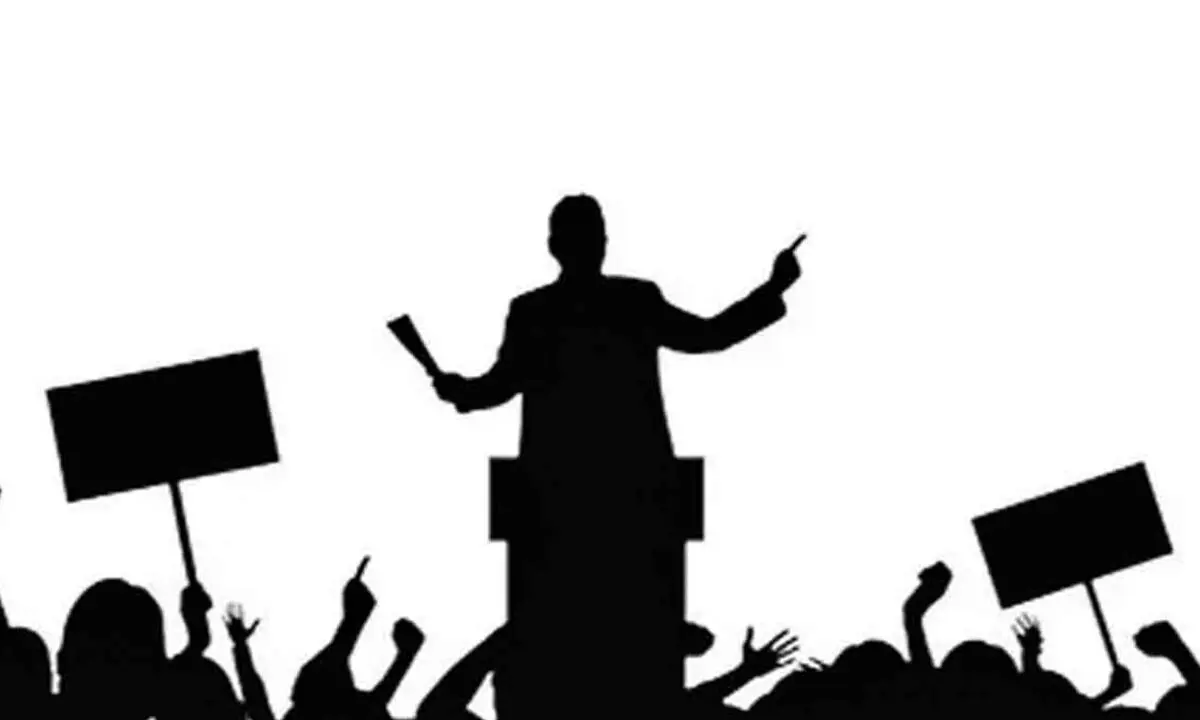The Birth of Legislative Proposals: From Ideas to Structured Text
Every transformative law starts with a single idea. This section explores how an initial concept undergoes transformation into a structured legislative proposal, set on the trajectory towards potential enactment.
The Initial Spark of an Idea
The process kicks off with a foundational concept, often inspired by observed societal needs or constituent concerns. For instance, a new proposal might emerge seeking to improve educational outcomes or tackle regional economic disparities. At this stage, the idea is somewhat unrefined and requires thorough development before it can formally enter the legislative arena.
Legislators, backed by legal and policy experts, work to refine this concept. They engage in preliminary assessments to understand the issue better and consult with stakeholders to gather initial support. Through research and outreach, the idea begins to take shape as a potential solution worth pursuing in the halls of government.
Drafting the Proposal: From Concept to Formality
Converting an idea into a formal bill entails meticulous drafting by a collaborative team of legal specialists and advisors. This drafting phase is pivotal as it sets the stage for what the proposal seeks to achieve and how it intends to operate within existing legal frameworks.
The drafting process thoroughly examines the potential impact of the bill and strives to articulate clear, implementable language. This phase balances legal precision with the flexibility needed to allow for adaptation and refinement. The draft undergoes multiple iterations, reflecting input from various stakeholders to ensure it is both comprehensive and tailored to address the initial intent effectively.
This initial drafting sets the tone for ensuing discussions and serves as the foundation for further legislative action.
Committees and Scrutiny: The Heart of Legislative Vetting
Committees are the cornerstone in examining proposals thoroughly and recommending viable paths forward for potential laws. Their work ensures that bills are robust and ready for the challenges of legislative debate.
Detailed Committee Examination
Committees undertake the monumental task of scrutinizing each bill referred to them. This involves organizing hearings, calling on experts to provide testimony, and evaluating the intricacies of the proposal. By doing so, committees aim to forecast possible outcomes and identify any shortcomings that may need addressing.
These bodies comprise legislators specializing in specific areas, such as health, finance, or human rights, whose expertise ensures that the bill matches policy needs. Their comprehensive examination ensures that the law is ready to face public and legislative scrutiny.
Refinement through Amendment and Review
As part of their examination, committees may propose amendments to the bill, reflecting their detailed analysis. These amendments can range from minor changes for clarity to significant alterations to better align with policy goals. Amendments ensure that the final document is robust, addressing various legislative priorities and stakeholder concerns.
Committees also monitor how existing laws perform, assessing their impacts and evaluating areas requiring improvement. This ongoing oversight helps refine proposals to ensure alignment with policy objectives and the changing needs of society.
Ensuring Human Rights Compliance
Certain committees focus exclusively on ensuring that legislative proposals uphold human rights standards. They review proposals meticulously to eliminate any potential rights violations, embodying the commitment to safeguarding individual freedoms while advancing policy goals.
The committee process underscores the importance of checks and balances, ensuring that the legislative system doesn't merely rush through proposals but refines them into effective, ethical laws.
The Crucial Debate Stage: Guided Discourse and Deliberation
Once a bill leaves the committee stage, it faces the broader legislative body. Here, debates provide a platform to challenge and refine the bill further, incorporating diverse voices and perspectives.
Engaging Public Scrutiny and Dialogue
At the heart of the legislative debate stage is public involvement. Lawmakers engage with constituents through various platforms—town hall meetings, public hearings, and digital outreach—to assess public sentiment and factor it into their deliberations.
Opposition groups and civil society play vital roles, often challenging the merits of proposals and pushing for changes that better align with public values. This scrutiny ensures policies reflect societal priorities and democratic ideals.
Legislative Negotiation and Amendment
Debates allow lawmakers to negotiate, propose amendments, and reach compromise. Compromise is crucial for any bill's progression, requiring lawmakers to negotiate their policy objectives to secure the necessary support.
This stage is where policy is defined and redefined, as lawmakers propose adjustments to address concerns within the legislative body and among the public. This iterative process allows for policy innovation while ensuring that diverse perspectives are incorporated.
Lobbyists and Legislative Influence: The Power Dynamics
The influence exerted by lobbyists is both a critical component of the legislative process and a point of contention. Their work behind the scenes shapes outcomes through a blend of advocacy, information dissemination, and strategic negotiation.
The Role and Techniques of Lobbyists
Lobbyists represent an array of interests—from large corporations to grassroots organizations. They offer legislators detailed insights, data, and analysis, helping to shape understanding and positions on various legislative items. By doing so, they negotiate the balance between their clients' needs and legislative priorities.
Lobbying encompasses activities ranging from direct advocacy to organizing campaigns that influence public opinion and legislative focus. These actions often extend beyond the legislative chambers, shaping the discourse in broader society.
Balancing Opportunities and Public Interest
While lobbying plays a legitimate role in democracy, ensuring it does not override public interest is paramount. Transparency measures, such as mandatory registration and activity disclosures, provide windows into these influencing dynamics, enabling public accountability.
Successfully balancing lobbying's influence necessitates strong regulatory frameworks and committed lawmakers who prioritize broader social goods over narrow interests.
Q&A
-
What are the essential steps involved in Bill Drafting?
Bill drafting involves several critical steps: identifying the problem or need for legislation, conducting research on existing laws and relevant data, consulting with stakeholders, and drafting the bill's text with precise language to ensure clarity and enforceability. Legal experts often play a significant role in this process to ensure the proposed bill aligns with constitutional and legal standards.
-
How do Committee Reviews impact the legislative process?
Committee reviews are crucial as they provide a detailed examination of a bill's content. During this stage, committees evaluate the bill's implications, gather expert testimony, and suggest amendments. This process helps refine the legislation, ensuring it is practical and addresses potential issues before it reaches the parliamentary debate stage.
-
What is the significance of Parliamentary Debate in passing a law?
Parliamentary debate is a fundamental aspect of the legislative process, allowing lawmakers to discuss the merits and drawbacks of a proposed bill. This stage offers a platform for presenting diverse perspectives, proposing amendments, and ultimately, determining the bill's viability. The debate ensures that all aspects of the legislation are thoroughly examined, promoting informed decision-making.
-
In what ways can Lobbying Influence affect the legislative process?
Lobbying influence can significantly impact the legislative process by shaping lawmakers' opinions and votes. Lobbyists, representing various interest groups, provide information, resources, and arguments to support their positions. While lobbying can help highlight important issues and contribute to informed policymaking, it can also lead to imbalances if certain interests dominate the conversation.
-
What challenges are associated with Policy Implementation after a law is passed?
Implementing a new law involves several challenges, including ensuring adequate funding, creating regulatory frameworks, and managing public and institutional resistance. Effective policy implementation requires coordination between various government agencies and stakeholders to translate legislative intent into practical, operational actions. Additionally, monitoring and evaluation are essential to assess the law's effectiveness and address any unforeseen issues.








